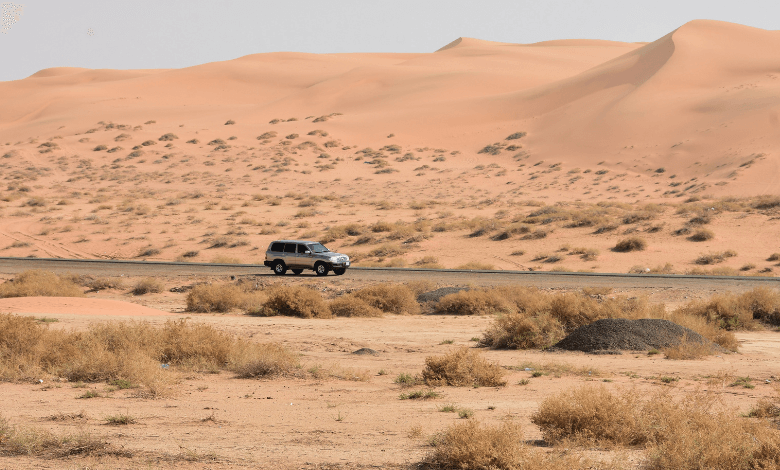What Hurdles Saudi Arabia May Encounter Amid Climate Change?

Middle East and North Africa Climate Week, which took place from October 8 to 12, unveiled a groundbreaking report shedding light on the potential hurdles Saudi Arabia may encounter in a three degrees Celsius world warmer. Titled “Climate Futures Report: Saudi Arabia in a 3-Degrees Warmer World,” this report underscores the alarming fact that Saudi Arabia is witnessing accelerated climate change compared to many other regions.
Authors and Collaborators of the Report:
The extensive 133-page study was a collaborative effort involving the King Abdullah University of Science and Technology (KAUST), AEON Collective, and the King Abdullah Petroleum Studies and Research Center. The report’s findings raise critical concerns about the climate trajectory of Saudi Arabia and the Middle East.
Accelerated Climate Change in Saudi Arabia:
The report points out that while the global average temperature may rise by nearly 3 degrees Celsius by the end of this century compared to the pre-industrial era of 1850 to 1900, the Middle East and North Africa (MENA) region, including Saudi Arabia, could experience this temperature increase much sooner. In the most extreme scenario, the Arabian Peninsula could witness a staggering temperature rise of 5.6 degrees Celsius by the century’s end, as stated in the report.
Princess Michael AlShalan’s Perspective:
Princess Mashael AlShalan from the AEON Collective, one of the report’s authors, emphasized the widespread impacts of climate change on various aspects of life. Climate change doesn’t merely challenge the environment; it affects health, food, water, and the economy. Today’s decisions will determine whether Saudi Arabia can navigate these challenges or face irreversible damage.
Impacts of Climate Change on Health and Environment:
The report predicts that the effects on human health will become increasingly pronounced. The deteriorating air quality will exacerbate respiratory issues, while there is a growing concern that climate change might create conditions more favorable for diseases like malaria and dengue. Furthermore, the expansion of deserts, driven by irregular rainfall, rising temperatures, and overgrazing, poses a significant threat to native vegetation and wildlife.
ALSO READ: Key Initiatives to Curb Global Warming and Secure Our Planet’s Future
Comprehensive Analysis of Climate Change Effects:
The report comprehensively analyzes how climate change will affect Saudi Arabia’s diverse ecosystems and habitats. Marine systems, for example, will experience significant stress, with phenomena such as coral bleaching becoming more prevalent. However, the report underscores that many of the negative consequences of climate change can still be mitigated. In recent years, Saudi Arabia has committed to pursuing transformative change, primarily focusing on safeguarding, preserving, and restoring natural capital.



